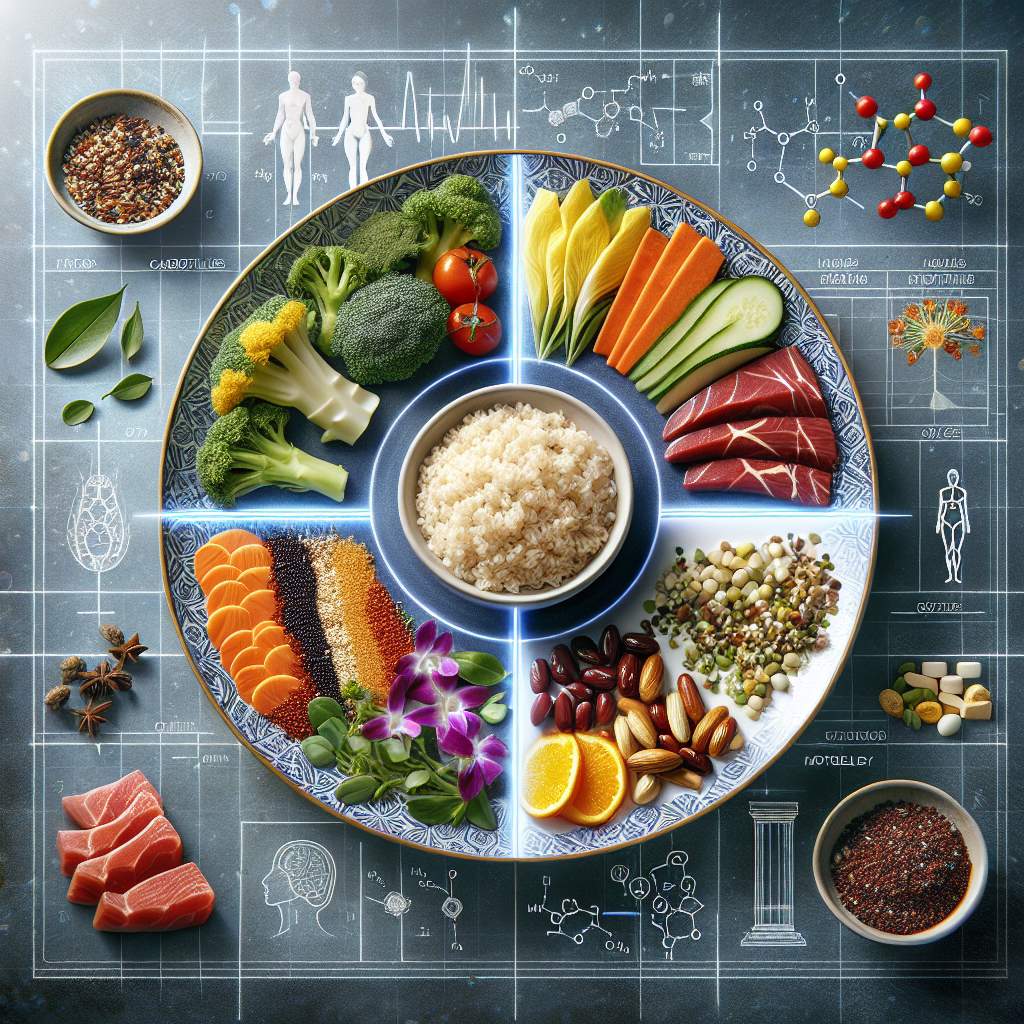Ever feel like you’re swimming against the current? That nagging fatigue, those unexplainable cravings, or that afternoon slump might be more than just modern life taking its toll. These symptoms could actually be telling you something profound: your body is out of sync with nature’s rhythms.
In our fast-paced world of 24/7 convenience stores and year-round access to every food imaginable, we’ve gradually disconnected from the natural cycles that guided human health for thousands of years. While technology has brought us many benefits, it’s also created a significant gap between our bodies and the seasonal patterns that once regulated our diets and lifestyles.
This disconnect isn’t just a philosophical concern—it may be directly impacting your health. When we consume foods that aren’t aligned with the current season, our bodies often struggle to process them efficiently. Traditional Eastern healing philosophies have long recognized this connection, suggesting that true wellness comes from living in harmony with nature’s cycles, rather than fighting against them.
“When you eat according to the seasons, you’re essentially giving your body exactly what it needs, when it needs it,” explains Dr. Lisa Chen, an integrative medicine specialist. “Nature is incredibly intelligent—it provides cooling foods in summer and warming foods in winter for a reason.”
A seasonal diet plan—one that focuses on consuming foods when they naturally grow and flourish in your region—could be the missing piece in your wellness puzzle. By realigning your eating habits with nature’s calendar, you might discover improvements not just in digestion and energy levels, but in your overall sense of balance and wellbeing.
The Ancient Wisdom Behind Seasonal Eating
Seasonal eating isn’t a new health trend—it’s actually one of the oldest dietary approaches on the planet. Nearly every traditional culture, from Chinese medicine to Ayurvedic practices to Native American wisdom, emphasized the importance of eating according to nature’s calendar.
In Eastern medical traditions, this concept is particularly central. According to these philosophies, humans are microcosms of the natural world, subject to the same forces and changes that affect all living things. When we align our diets with seasonal patterns, we support our body’s natural processes rather than forcing it to adapt to inappropriate foods.
The Five Element Theory in Eastern medicine connects different seasons with specific organs, emotions, and dietary needs. For instance, winter corresponds to the kidney and bladder, suggesting that these organs need extra nourishment during colder months through foods like bone broths, root vegetables, and warming spices.
Modern nutritional science has begun to catch up with these ancient insights. Research now confirms that fruits and vegetables harvested at peak ripeness contain higher levels of phytonutrients and antioxidants than those picked prematurely and shipped across continents. A study published in the Journal of Agricultural and Food Chemistry found that spinach harvested in season had up to three times the vitamin C content of its out-of-season counterpart.
“When a plant is allowed to grow according to its natural timeline, exposed to the appropriate amount of sunlight and allowed to ripen fully on the plant, it develops a complete nutritional profile,” notes nutritionist Maria Johnson. “Eating these foods in season means you’re getting nature’s nutrition exactly as intended.”
Beyond nutrition, there’s also the undeniable advantage of taste. Anyone who’s bitten into a pale, mealy tomato in January and compared it to a sun-ripened, just-picked tomato in August knows there’s simply no comparison. When we eat seasonally, we experience food at its most flavorful and satisfying, which naturally encourages healthier eating habits.
Seasonal Diets: Good for You, Good for the Planet
Adopting a seasonal diet plan doesn’t just benefit your personal health—it’s a choice with profound environmental implications. Every time you choose locally-grown, seasonal produce, you’re casting a vote for sustainability and reduced carbon emissions.
Consider this: The average food item in the United States travels an estimated 1,500 miles before reaching your plate. Out-of-season produce often requires energy-intensive greenhouse growing conditions or long-distance shipping from countries with different growing seasons. One study from the University of Iowa found that conventional food distribution uses 4 to 17 times more fuel and generates 5 to 17 times more carbon dioxide than local and regional food systems.
“When you choose seasonal foods from local sources, you’re dramatically reducing the environmental footprint of your diet,” explains environmental scientist David Wilson. “It’s one of the most impactful daily choices we can make for planetary health.”
Supporting seasonal eating also helps preserve agricultural diversity. When farmers know there’s demand for a variety of seasonal crops rather than just a few year-round staples, they’re more likely to maintain diverse growing practices that support soil health and ecosystem balance.
This environmental consciousness aligns perfectly with the holistic perspective of Eastern healing philosophies, which emphasize the interconnectedness of personal and environmental wellbeing. In traditional Eastern thought, human health cannot be separated from the health of the natural world—they are fundamentally linked.
Many health-conscious individuals already understand this connection intuitively. A 2022 survey found that 65% of people who prioritize natural approaches to wellness also express strong concern for environmental sustainability. By choosing a seasonal diet plan, you’re nurturing both your body and the planet that sustains it.
Nature’s Antidote to Cravings and Food Boredom
Have you ever noticed how your food preferences naturally shift with the weather? That desire for refreshing watermelon in summer or hearty stews in winter isn’t just coincidence—it’s your body’s innate wisdom guiding you toward what it needs.
A seasonal diet plan works with these natural inclinations rather than against them. When you eat according to the seasons, you’re providing your body with precisely the nutrients it requires to thrive in current conditions. Summer fruits are naturally hydrating and cooling, while winter root vegetables provide sustained energy and warmth—exactly what your body craves as temperatures drop.
This natural alignment can help reduce problematic food cravings, which often result from nutritional imbalances or the body’s confused attempts to meet its needs. Many people find that when they commit to seasonal eating, their relationship with food becomes more intuitive and less fraught with unnecessary cravings or restrictive patterns.
“In Eastern medicine, we see food as medicine,” explains acupuncturist and herbalist Jenny Wong. “Each seasonal food has properties that help balance the body during that particular time of year. Summer foods cool excess heat, autumn foods support the lungs and immunity as cold and flu season approaches, and so on.”
This concept of food as medicine is central to Eastern healing traditions. Rather than viewing diet as simply fuel or counting calories, these philosophies recognize the therapeutic qualities of different foods and their ability to support specific bodily functions and address imbalances.
Perhaps most surprisingly, embracing seasonal limitations actually leads to greater variety in your diet over the course of a year. Instead of eating the same 15-20 foods repeatedly, seasonal eating introduces you to an ever-changing menu that follows nature’s rhythms. This diversity not only prevents food boredom but also ensures a broader spectrum of nutrients throughout the year.
“I always tell my clients that seasonal eating is the original ‘variety diet,'” says nutritional therapist Lisa Chen. “Nature provides exactly what we need in each season, and the changing menu keeps meals interesting and nutritionally diverse.”
Making Seasonal Eating Work for You: Practical Tips
Ready to sync your diet with nature’s rhythms? Here are some practical steps to get started with a seasonal diet plan:
Familiarize yourself with local growing seasons. Download a regional harvest calendar or visit the Seasonal Food Guide website to learn which foods naturally grow in your area throughout the year.
Visit farmers’ markets. These are treasure troves of seasonal eating, offering the freshest local produce while connecting you directly with the people who grow your food.
Join a CSA (Community Supported Agriculture) program. These subscription services deliver boxes of seasonal produce directly from local farms, forcing you to get creative with whatever’s currently growing.
Learn basic preservation techniques. Freezing, canning, fermenting, and dehydrating allow you to enjoy seasonal bounty throughout the year while maintaining nutritional value.
Cook with seasonal herbs and spices. Even your seasonings can align with nature’s calendar! Cooling mint and basil for summer, warming cinnamon and ginger for winter.
Begin with one seasonal meal per day. Don’t feel overwhelmed by making an immediate complete shift—start with breakfast or dinner using seasonal ingredients.
While these general guidelines work for anyone, Eastern medicine reminds us that each person has unique constitutional needs. This is where technology like EASTCHI AI can be particularly valuable. By analyzing your specific constitution through the lens of Five Element Theory, EASTCHI AI can provide personalized recommendations for seasonal foods that will best support your individual body type and current health status.
“What makes EASTCHI AI so revolutionary is its ability to bridge ancient wisdom with modern technology,” explains nutritionist Sarah Lee. “It can help you understand not just what’s in season, but which seasonal foods are most beneficial for your particular constitution and health goals.”
For example, someone with a naturally “warm” constitution might need more cooling foods even in winter, while someone with a “cool” constitution might require warming elements even in summer dishes. This personalized approach takes seasonal eating beyond a general practice to a truly individualized healing strategy.
More Than a Diet: A Holistic Approach to Living
Adopting a seasonal diet plan isn’t simply about changing what’s on your plate—it represents a fundamental shift in how you relate to food, nature, and your own wellbeing. This approach recognizes that true health emerges from alignment rather than control, from working with natural cycles rather than against them.
When you eat seasonally, you become more attuned to subtle changes in your environment and how they affect your body. You might notice your energy naturally shifting with the seasons—more outward and active in spring and summer, more reflective and conserving in fall and winter. Rather than fighting these patterns with caffeine and artificial stimulants, a seasonal lifestyle honors and supports these natural rhythms.
This holistic approach extends beyond individual health to community and environmental wellbeing. Shopping seasonally often means supporting local farmers and food artisans, strengthening regional food systems and creating resilient communities. It reconnects us with the sources of our nourishment and the cycles that sustain all life.
EASTCHI AI embodies this integrated approach by combining the wisdom of Eastern medical traditions with the precision of modern technology. By analyzing individual needs and providing customized recommendations, it helps bridge the gap between ancient knowledge and contemporary lifestyles.
“What makes Eastern approaches to health so powerful is their recognition that everything is connected,” says Dr. Michael Chang, an integrative medicine physician. “Your diet affects your emotions, your emotions affect your physical health, your health affects your community, and so on. Seasonal eating is one way to honor those connections.”
As you explore a seasonal diet plan, remember that it’s not about perfection but about gradually realigning with natural rhythms. Each seasonal meal is a step toward greater balance, each mindful food choice an opportunity to nourish not just your body, but your connection to the cycles of life that sustain us all.
Is your body feeling out of sync? Perhaps it’s time to let nature’s wisdom guide your plate. Your body might just thank you with renewed energy, balanced health, and a deeper connection to the world around you. And with tools like EASTCHI AI to personalize the journey, achieving that harmony has never been more accessible.



